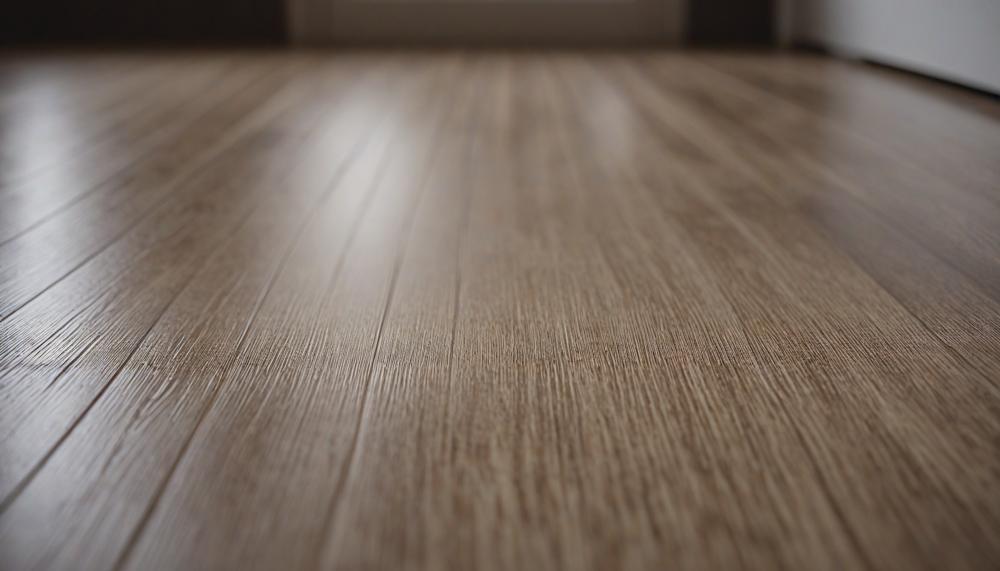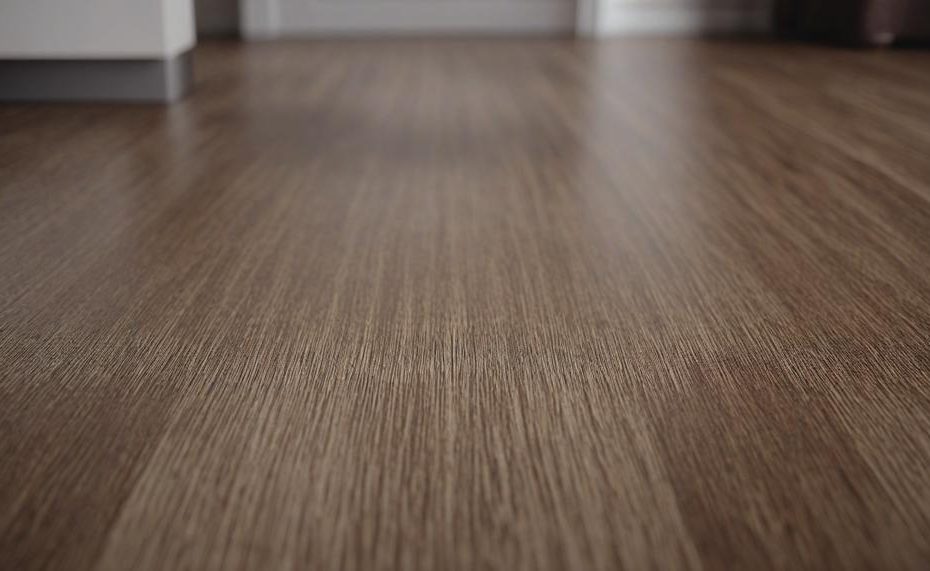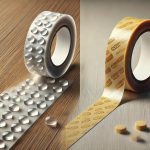When tackling a vinyl flooring project, selecting the right glue is a game-changer. The wrong adhesive can turn your beautifully laid floor into a peeling, bubbling mess over time. So, what’s the secret sauce? Let’s dive into the essentials.
Vinyl flooring comes in two main forms: sheet and tile/plank. Each type requires a specific kind of adhesive to ensure a seamless and lasting installation.
For sheet vinyl flooring, pressure-sensitive adhesive (PSA) is the go-to. PSA remains tacky after drying, making it easy to reposition the flooring if needed. Plus, it’s water-resistant and provides strong bonding strength. You can choose between water-based and solvent-based PSA, with water-based being the more eco-friendly option.
For tile or plank vinyl flooring, you need a permanent adhesive. This adhesive sets firmly, ensuring a strong bond between the flooring and the subfloor. Popular choices include acrylic, urethane, and epoxy adhesives. Acrylic adhesives offer a robust bond and flexibility, making them a top pick.
The subfloor type also plays a pivotal role in your adhesive choice:
- Concrete subfloors: Epoxy-based adhesives are ideal for their excellent moisture resistance.
- Wood subfloors: Urethane-based adhesives work best as they accommodate the natural movement of wood without compromising the bond.
Table of Contents
Key Takeaways:
- Sheet Vinyl: Use pressure-sensitive adhesive (PSA).
- Tile/Plank Vinyl: Use permanent adhesive (acrylic, urethane, or epoxy).
- Concrete Subfloors: Opt for epoxy-based adhesive.
- Wood Subfloors: Urethane-based adhesive is preferable.
- Environmental Concerns: Water-based PSA is more environmentally friendly than solvent-based.
Getting the glue right ensures your vinyl flooring looks great and stays put. Ready to make your flooring project a success? Let’s get started with the perfect adhesive for your needs.
Types of Vinyl Flooring
Luxury Vinyl Tile (LVT)
LVT mimics natural stone or ceramic tiles, offering durability and design flexibility. It comes in individual tiles, making installation straightforward.
>Best Glue:
Acrylic-based adhesive provides a robust bond, suitable for heavy traffic areas. It also resists moisture, which is essential for maintaining the tile’s integrity.
Luxury Vinyl Planks (LVP)
LVP resembles hardwood flooring with realistic wood textures. It offers the warmth and look of wood with enhanced durability.

Best Glue:
Urethane-based adhesive works best for LVP, especially over wood subfloors. It allows natural movement without compromising the bond.
Sheet Vinyl
Sheet vinyl is a continuous, flexible flooring option, perfect for large, seamless surfaces. It is ideal for moisture-prone areas like kitchens and bathrooms.
Best Glue:
Pressure-sensitive adhesive (PSA) is recommended for sheet vinyl. Its tacky nature after drying allows repositioning, making installation easier and reducing errors.
Condition of Subfloor
The condition of the subfloor significantly influences the choice of glue for vinyl flooring. A smooth, clean, and dry subfloor is essential for ensuring proper adhesion and timely drying of the adhesive. Here are the key factors:
| Condition | Impact on Glue Choice | Recommended Actions |
| Smoothness | Ensures even application and strong adhesion | Sand and level the subfloor as needed |
| Cleanliness | Prevents weak adhesion due to contaminants | Thoroughly clean the subfloor before applying glue |
| Dryness | Essential for proper curing and strength | Ensure subfloor is completely dry |
| Material Compatibility | Requires specific glue types for different materials | Choose glue formulated for the subfloor material |
To ensure a successful vinyl flooring installation, pay close attention to the condition of your subfloor. Proper preparation and the right choice of glue based on the subfloor’s characteristics are paramount for a durable and aesthetically pleasing finish.
Pressure-Sensitive Adhesive
Pressure-sensitive adhesive (PSA) is a non-reactive adhesive, typically acrylic-based, known for its ease of use and versatility in various applications, including vinyl flooring. Unlike other adhesives that require heat or water to activate, PSA bonds instantly when pressure is applied.
How It Works on Vinyl Flooring
PSAs are applied to the subfloor where they begin to dry, achieving their bonding strength through a process involving evaporation or absorption of moisture. Here’s how it specifically works for vinyl flooring:
Application:
- PSAs are spread over the subfloor using rollers, ensuring a smooth layer without trowel ridges.
- The low viscosity of PSA allows for easy application, even on vertical surfaces.
Drying Time:
- The adhesive needs to dry to a certain extent before the vinyl flooring is laid. The drying time varies based on environmental conditions and the type of substrate.
- For absorbent-backed flooring, a short airing time is sufficient for proper adhesion.
- The effectiveness of PSA depends on the transfer of adhesive from the subfloor to the vinyl’s backing.
- This transfer is facilitated by the evaporation or absorption of moisture, which carries essential components for bonding.
- Complete drying before installation ensures good adhesion, particularly on moisture-sensitive flooring over non-absorbent substrates.
- Stable environmental conditions are critical to prevent issues like insufficient resistance against movement in the flooring.
- The airing times for drying are influenced by these conditions and should be verified against the technical data sheets provided by the adhesive manufacturer.
- PSAs allow for flexible installation processes, making them suitable for large areas.
- They provide strong bonds and are particularly beneficial for moisture-sensitive flooring.
- However, incorrect usage can lead to poor results, so it is important to follow installation guides from both the flooring and adhesive manufacturers.
- Pressure-sensitive adhesive: Stays slightly tacky after curing, allowing for easy removal or adjustments.
- Acrylic-based adhesive: Provides a strong bond and is moisture-resistant.
- Manufacturer-specific adhesives: Tailored to particular products for optimal results.
- Pressure-Sensitive Adhesive: Ideal for installations where future adjustments might be necessary. It remains slightly tacky, allowing for repositioning.
- Acrylic-Based Adhesive: Offers a robust and moisture-resistant bond, suitable for various environments.
- Manufacturer-Recommended Adhesives: These are specifically designed for certain vinyl flooring products, ensuring the best performance and compatibility.
Resilient flooring and tiles require the adhesive to form a light skin before placement.
-
Adhesion Mechanism:
Environmental Conditions:
Benefits and Precautions:
Acrylic Adhesive
Acrylic adhesive offers several advantages for vinyl flooring installations, providing durability, ease of use, and reliability. Here are the key benefits:
| Strong Bond | Acrylic adhesive creates a robust bond between the vinyl flooring and subfloor, ensuring the flooring stays in place without lifting or moving over time. |
| Moisture Resistance | Due to its moisture-resistant properties, acrylic adhesive is ideal for high-moisture environments such as bathrooms and kitchens, preventing damage and maintaining flooring integrity. |
| Manufacturer Recommended | Many vinyl flooring manufacturers specifically recommend acrylic adhesive for their products, ensuring compatibility and optimal performance. |
| Ease of Application | Typically available as a pressure-sensitive adhesive, acrylic adhesive is easy to apply, requiring just the right amount of pressure to create an instant bond, which simplifies the installation process. |
| Versatile Use | Acrylic adhesive can be used in both large-scale and small-scale installations, making it suitable for a variety of vinyl flooring types, including planks and tiles. |
| Durability | This adhesive type offers long-lasting performance, maintaining its bond and strength over time, even in areas with heavy foot traffic. |
These benefits make acrylic adhesive a preferred choice for many homeowners and professionals alike.
Epoxy Adhesive
Epoxy adhesive is a robust option for vinyl flooring due to its unique set of features. Here’s an analysis of the key characteristics that make it ideal:
| Feature | Explanation | Benefits |
| Compatibility | Epoxy adhesives are specifically formulated to bond well with vinyl materials. | This ensures a strong and durable bond, preventing the vinyl from peeling or lifting over time. |
| Strength | While being incredibly strong, epoxy can be formulated to avoid excessive strength that might damage vinyl. | Provides a reliable hold without compromising the integrity of the vinyl flooring. |
| Moisture Resistance | Epoxy adhesives are highly resistant to moisture. | This is crucial for maintaining adhesion in areas prone to spills or high humidity, such as kitchens and bathrooms. |
| Versatility | Epoxy works well with various materials, including rubber and vinyl. | Makes it a flexible option for mixed-material flooring projects. |
| Manufacturer Recommendations | It’s important to follow specific product guidelines for optimal results. | Ensures compatibility and maximizes the effectiveness of the adhesive for your particular vinyl flooring type. |
Epoxy adhesive’s balance of compatibility, strength, moisture resistance, and versatility make it a superior choice for vinyl flooring. Its formulation can be fine-tuned to ensure it bonds well without damaging the flooring, offering a reliable and durable solution for both residential and commercial applications.
Choosing the Right Glue for Vinyl Flooring
Choosing the right glue for vinyl flooring involves several crucial factors. Here’s a detailed guide to help you make an informed decision:
Factors to Consider
| Type of Vinyl Flooring | Room Environment | Manufacturer’s Recommendations |
| Determine whether you’re installing luxury vinyl tile (LVT), luxury vinyl plank (LVP), or sheet vinyl. Each type might require a different adhesive for optimal performance. | Consider the room’s moisture levels and temperature fluctuations. High-moisture areas, like bathrooms and basements, need adhesives with superior moisture resistance. | Always check the manufacturer’s guidelines. Using the recommended adhesive ensures compatibility and maintains any warranties. |
| Ease of Application | Bond Strength | Pre-applied Adhesive Options |
| Choose an adhesive that is easy to apply, especially if you’re a DIY enthusiast. Some adhesives come in user-friendly formats that simplify the installation process. | Ensure the adhesive provides a strong bond to keep the vinyl flooring in place, preventing lifting or shifting over time. | Some vinyl flooring products come with pre-applied adhesive, making the installation process quicker and easier. Consider these options if convenience is a priority. |
| Resistance to Moisture | Type of Adhesive | |
| Adhesives need to withstand moisture to prevent damage and ensure longevity. Look for options specifically designed for high-moisture environments. | Different adhesives offer various benefits:
|
Types of Adhesive
Maintenance Tips
To keep your vinyl flooring looking great and lasting longer, use a high-quality adhesive designed specifically for vinyl flooring. Always follow the manufacturer’s care instructions and recommendations for the best results.
For more details, you can refer to the comprehensive guide on vinyl flooring adhesives available on Wikipedia.
Conclusion
Choosing the right glue for vinyl flooring is paramount for a flawless, durable finish. The glue you select will determine the longevity and appearance of your floor, whether it’s a sheet, tile, or plank vinyl. Here’s a concise guide to help you make an informed choice.
For sheet vinyl flooring, pressure-sensitive adhesive (PSA) is your best bet. PSA remains tacky, allowing for easy repositioning, which is particularly useful during installation. It also provides strong bonding strength and water resistance. Opt for water-based PSA if you’re looking for an eco-friendly option.
When it comes to tile or plank vinyl flooring, permanent adhesives are necessary. These include acrylic, urethane, and epoxy adhesives, each offering unique benefits. Acrylic adhesives are known for their robust bond and flexibility, making them ideal for high-traffic areas. Urethane-based adhesives are perfect for wood subfloors as they can accommodate the natural movement of wood without losing their grip. Epoxy adhesives excel on concrete subfloors due to their excellent moisture resistance.
Consider your subfloor type when selecting an adhesive. For concrete subfloors, epoxy-based adhesives are ideal due to their superior moisture resistance. On the other hand, urethane-based adhesives work best on wood subfloors as they allow for the natural expansion and contraction of wood.
In summary, the key to a successful vinyl flooring project lies in choosing the right adhesive based on the type of vinyl and the subfloor. Using pressure-sensitive adhesive for sheet vinyl and permanent adhesives for tiles or planks ensures a long-lasting, professional finish. Prioritize water-based PSAs for an eco-friendly choice, and match your adhesive to your subfloor type to maintain a strong, durable bond.






